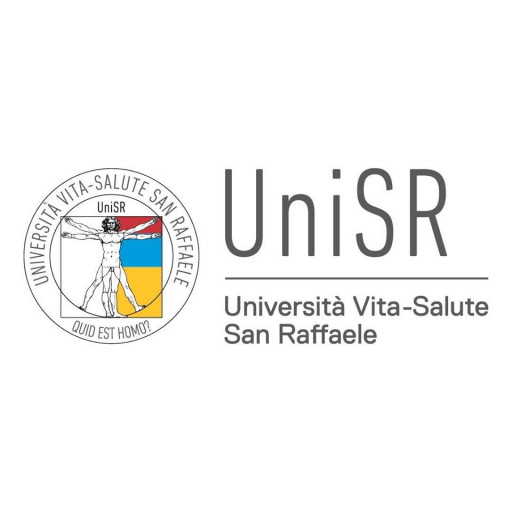The Bachelor of Psychological Science at the University of New England provides students with a comprehensive foundation in the scientific study of human behaviour and mental processes. This program is designed to equip graduates with the theoretical knowledge and practical skills necessary to understand, assess, and analyse psychological phenomena across diverse contexts. Throughout the course, students explore core areas such as cognitive processes, developmental psychology, social psychology, abnormal psychology, and research methods, fostering a deep understanding of how individuals think, feel, and behave within their environments.
The curriculum emphasizes evidence-based practice, critical thinking, and ethical considerations intrinsic to psychological work. Students gain hands-on experience through practical placements, laboratory work, and research projects, enabling them to apply theoretical concepts to real-world situations. The program prepares graduates for diverse careers in mental health, community services, human resources, education, and research. Additionally, it provides a solid foundation for further postgraduate study in psychology or related fields.
The university’s supportive learning environment encourages collaboration and innovation, with access to state-of-the-art facilities and resources. Students have opportunities to engage with leading academics and industry professionals, enriching their educational journey and enhancing their employability prospects. Graduates of the Bachelor of Psychological Science at UNE are well-equipped to make meaningful contributions to society by promoting mental health and wellbeing, supporting individual and community development, and advancing psychological research and practice.
Detailed Course Facts
Application deadline You are advised to apply as early as possible Tuition fee- EUR 12680 Year (National)
- EUR 12680 Year (International)
Duration full-time 48 months Languages Take an IELTS test
- English
Course Content
Course Aims
The Bachelor of Psychological Science provides an accredited three year undergraduate major in psychology. This involves a thorough grounding in the core areas of psychology, plus an opportunity to explore specialist areas, while also allowing the student to study other areas of interest.
Learning Outcomes
Upon completion of this course, students will be able to:
Graduate Attributes
Knowledge of a Discipline
Graduates will acquire a body of knowledge in psychology through the study of the core units. Specialisation is then provided for with a range of elective units at 300-level psychology, plus additional opportunity for studying in cognate disciplines in any area of the university. This knowledge will be taught in lectures, unit materials and online activities and will be assessed throughout the degree through a range of different activities.
Communication Skills
Communication skills are taught, assessed and practised through written assignments and face-to-face (or online equivalent) tutorial and laboratory sessions that are required in all psychology units (both core and elective).
Global Perspectives
Information provided within each unit embeds current global knowledge within the discipline of psychology.
Information Literacy
Through the writing of essays and research reports graduates will develop the skills with which to discover and process relevant information and to present it in a coherent fashion.
Life-Long Learning
All psychology units within this degree develop the graduate's skills in identifying and accessing information that is relevant to their needs, through both library searches and the internet. This skill empowers graduates to continue accessing new information as required.
Problem Solving
Most of the post-100 level psychology units include data collection in order to address an issue in the literature. The onus is then on the student to generate a research report providing a solution to that issue.
Social Responsibility
During data collection and a range of other activities within psychology units the issue of ethics is explicitly integrated.
Team Work
Across a range of units graduates are required to work in groups in various activities, both face-to-face and online.
English Language Requirements
IELTS band : 6
To study at this university, you have to speak English. We advice you to
take an IELTS test. More About IELTSRequirements
For direct admission into undergraduate courses offered by the University of New England, international applicants must have completed an educational qualification considered to be at least equivalent to completion of Year 12 in Australia.
A candidate shall be qualified for admission (see Admission Rule Undergraduate Policy).
Assumed knowledge is any two units in English.
Work Experience
No work experience is required.
The University of New England offers a variety of financing options to support students enrolled in the Psychological Science program. Eligible students can access government-funded financial aid programs such as the Commonwealth Supported Place (CSP) which significantly reduces the tuition fees for domestic students. Students are encouraged to apply for FEE-HELP, a government loan scheme that assists eligible students in paying their tuition fees, allowing them to defer payments until income reaches a certain threshold after graduation. Additionally, students can explore the university's scholarships and bursaries dedicated to psychology students, which are awarded based on academic merit, financial need, or specific criteria such as community involvement or research interests. The university also provides information on external funding opportunities, including research grants, industry scholarships, and government grants that support higher education and research endeavors. International students may be required to pay full tuition fees, but the university offers tailored scholarships and financial assistance programs to help ease the financial burden. Besides direct funding options, students are advised to consider part-time employment opportunities on or near campus, which can supplement their income while balancing academic commitments. UNE also provides budgeting workshops and financial counseling services to help students plan their finances effectively during their studies. The university’s financial support programs are designed to ensure that students from diverse backgrounds and financial situations can access quality education in Psychological Science without undue hardship. Throughout the duration of the program, students are encouraged to stay informed about new funding opportunities and updates via the university's official communication channels and financial aid offices. Overall, the University of New England’s comprehensive approach to student financing aims to promote access, retention, and success in the Psychological Science program by providing a range of financial support options tailored to individual needs.
The Bachelor of Psychological Science at the University of New England is a comprehensive undergraduate program designed to provide students with a thorough understanding of the core principles and contemporary issues in psychology. This program aims to equip students with both theoretical knowledge and practical skills, preparing them for diverse careers within and beyond the field of psychology. The curriculum covers a broad range of topics, including cognitive psychology, developmental psychology, social psychology, clinical psychology, and research methods. Students engage in rigorous training in statistical analysis, scientific research, and ethical considerations relevant to psychological practice. The program emphasizes critical thinking, problem-solving, and effective communication, fostering a strong foundation for both professional practice and further study, such as postgraduate studies or specialized training in areas like counseling, clinical psychology, or organizational psychology. Students have opportunities to participate in research projects, internships, and community engagement programs, enriching their learning experience and enhancing their employability. The University of New England supports a student-centered learning environment, utilizing modern facilities, technology, and resources to facilitate innovative teaching and learning approaches. Graduates of the program are prepared for employment in various sectors, including healthcare, education, social services, government agencies, and private enterprises. Additionally, the program offers pathways for students interested in pursuing postgraduate qualifications, including honors and master’s degrees, to advance their knowledge and career prospects in psychology. The university is committed to academic excellence, inclusivity, and fostering a supportive community that encourages personal growth, ethical practice, and lifelong learning. Overall, the Bachelor of Psychological Science at UNE provides a strong foundation for students aspiring to contribute meaningfully to society through the understanding and application of psychological principles and practices.










